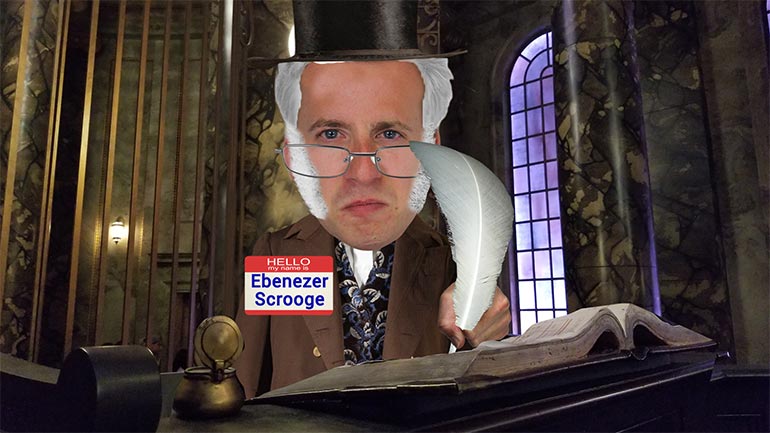Our local gas station just taped up a new notice in its front window. Every time we pay for gas using a debit or credit card, we’ll be charged a 25-cent fee. “What kind of malarkey is this?” we ask ourselves as we fill up our Prius.
This kind of malarkey isn’t actually malarkey at all. Rather, it’s something called a “prepaid finance charge”: a separate fee we automatically pay when completing a transaction.
We see prepaid finance charges all over the place—like our fave gas station—but one of the most common places they can be found is in the wonderful world of loans. If we, for example, decide to buy a house, we’ll have all sorts of prepaid finance charges attached to our closing costs: origination fees, administration costs, processing fees, etc. These fees are automatically added onto our bill, and must be paid in full if we want to conclude the transaction—i.e., if we want the home loan—which is why they’re considered “prepaid.” Sometimes these fees are negotiable, but usually only before we pay them. Also, since lenders don’t always tape notices in their windows telling us what kinds of fees we’ll be paying and how much they are, it’s wise to shop around, ask questions, read the fine print, and make sure we know what we’ll be asked to pay come closing time.
Related or Semi-related Video

Finance: How Do Credit Card Companies Wo...116 Views
finance a la shmoop. how do credit card companies work? you could write a
book on this but don't. it'll hurt instead think about a credit card [man carries huge book and grimaces]
company is kind of twisted moneylender who really makes money in two ways.
well first they make money from the people who take your credit cards like
when you use your credit card to lovingly pay shmoop 20 bucks a month for our
awesome content. thank you very much. that $20 charge carries about a 1% hit. from
the credit card company that is the hard-working elves here at shmoop only
keep about nineteen dollars and 80 cents from that twenty you just paid. credit [equation]
card companies need to pay for their jets right? well that one transaction was
just 20 cents but there are gujilion's of them so the dough adds up to billions
and billions really fast. unless do you think the job of being a credit card
company is easy, note that every few thousand transactions is done by some
bad actor like no different kind of bad actor. you know meaning of theif someone
behaving badly they've stolen your card and if race to Best Buy [man runs out of store carrying TV]
hoping to abscond with ten flat screens to sell on the street corner and make a
fast buck. while the credit card company is generally responsible for those
frauds against mankind and have to hunt down the bad guys .so that's one way
they make money. the other way credit card companies get paid is that they get
money from consumers who use them either directly or indirectly directly. means
something like an annual fee. and then there are charges well you know that is
if you don't pay off your credit card bill each month you carry what is called [credit card rates listed]
a balance. and on those amounts you pay huge interest. like for many buyers on
credit the fee is 15 to 20 percent per year these days and sometimes more. so if
you bought a thousand dollar television set with your 20% credit card and didn't
pay it off for three years you'd have paid $200 a year in interest for three
years or $600. do you think Visa Mastercard or Amex pay 20% interest for
the money they borrow to lend to you? hardly they pay very very low interest
rates like just a few percent in there so on the [visa employees pictured]
20% they charge you an interest to punish you for not paying off your
credit card their cost is more like 2% I either making like an 18% spread or
profit margin on that money. the 600 bucks you paid for renting the grand for
3 years from the kindly loving people at visa
Oh made visa over 500 bucks on that money nice. work if you can get it and [equation]
you know a really nice jet.
Up Next
Stagflation is a condition of the economy marked by slow (stagnant) economic growth and high unemployment and inflation
What is a line of credit? A line of credit is kind of like a loan. A bank gives a borrower a line of credit, which basically says they can borrow �...

